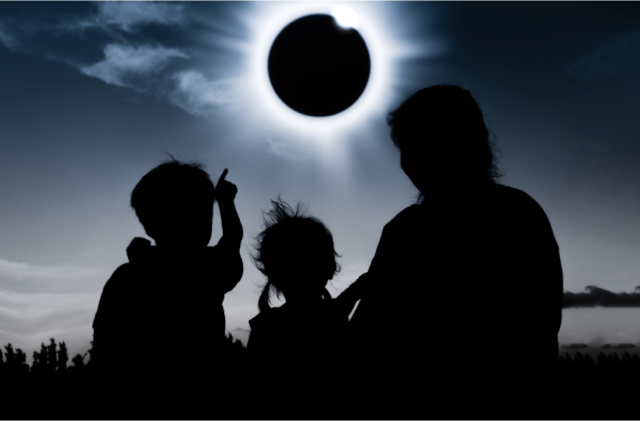
Today marks a major event. Solar eclipse 2017 is occurring across the continental United States. When listening to mainstream media reporters discuss this moment, I heard someone (ignorantly) suggest that it offers the chance for unity and for us to come together. Before I get into that let me be unequivocal in my support of the sciences and the pursuit of knowledge, especially in a country that now prides itself on ignorance in the form of #alternativefacts and #fakenews. As an educator it makes my heart sing to see children (and adults) excited to see our cosmos at work. However, we can certainly walk and chew gum at the same time, and this event CANNOT replace the very real unity work that people are doing to fight against systemic racism and its roots in white supremacy.
The media’s and society's desire to move on to a more positive story and call for “unity” certainly feels good because it allows us to the escape the ugly past and present of this country, to turn away from its blinding reality because it’s too painful to watch. It allows us to turn away from the fact that just a week before the eclipse, in Charlottesville, white terrorists marched through the streets and a woman who was protesting was murdered (I know that “murdered” is a legal term but I’m using it here intentionally). It allows us to ignore the vicious beating Deandre Harris experienced by avowed white supremacists. Calls for unity ignore how this is an opportunity to teach ourselves and our children – because our educational system did not – about the history of white supremacist groups in America. Great number of resources exist for educators to teach about the history of the KKK and to contextualize the march through Charlottesville. Examples like, “Violence, the KKK, and the Struggle Equality,” “Birth of the Ku Klux Klan,” “History of the Klan,” “Testimonies Leading to the Ku Klux Lean Act of 1871,” and “Why I Quit the Klan” are lesson plans educators can use—all of which are included in Beyond Heroes and Holidays: A Practical Guide to K-12 Anti-Racist, Multicultural Education and Staff Development.
Emphasizing the eclipse as a unifying moment allows us to have a Pollyanna view of the world – the view that if we just “unite” it will end the physical, psychic, institutional and structural violence against people of color and other marginalized communities committed in the name of white supremacy. It ignores the fact that racist and racist-adjacent behavior is sanctioned by our current government, and that white supremacist violence remains white folks’ response to advancement by people of color. For more evidence of this check out Dr. Carol Anderson’s well documented book White Rage.
As we revel in this solar eclipse, why not use it as an opportunity to learn about and celebrate the unsung heroes who have contributed to our ability to participate in this moment? Who are all the scientists that helped get us here—in particular, the Black and Brown, differently abled, working class, intersex, immigrant, and/or queer scientists? Their stories are not mainstream, but they exist. It’s important to acknowledge that the work of folks from a wide variety of backgrounds contributed to our ability to know the exact time that the full eclipse would occur in South Dakota or Oregon or at any of the other watch centers (some of which are CHARGING money for tickets <insert side eye to #capitalism here>). Movies like Hidden Figures teach us that some stories are indeed erased and therefore we must mine for them. It’s important to acknowledge the range of people who have contributed to this moment so that we do not continually hold up examples of cis-gendered white males, such as Bill Nye the Science Guy, as the only examples of “real” scientists (but no shade to Bill; he played an integral role in my understanding of science as young child).
This eclipse is a teachable moment to do more than offer weak platitudes of unity. It is an opportunity to offer concrete examples of real unity equity that include challenging white supremacy by acknowledging the collective contributions of people from diverse backgrounds to the discipline of science.
Otherwise we will have ignorant politicians like Steven King touting on MSNBC that only white people have contributed to civilization (yup, you read that right). Let’s know better, so that we can do better and be better.



